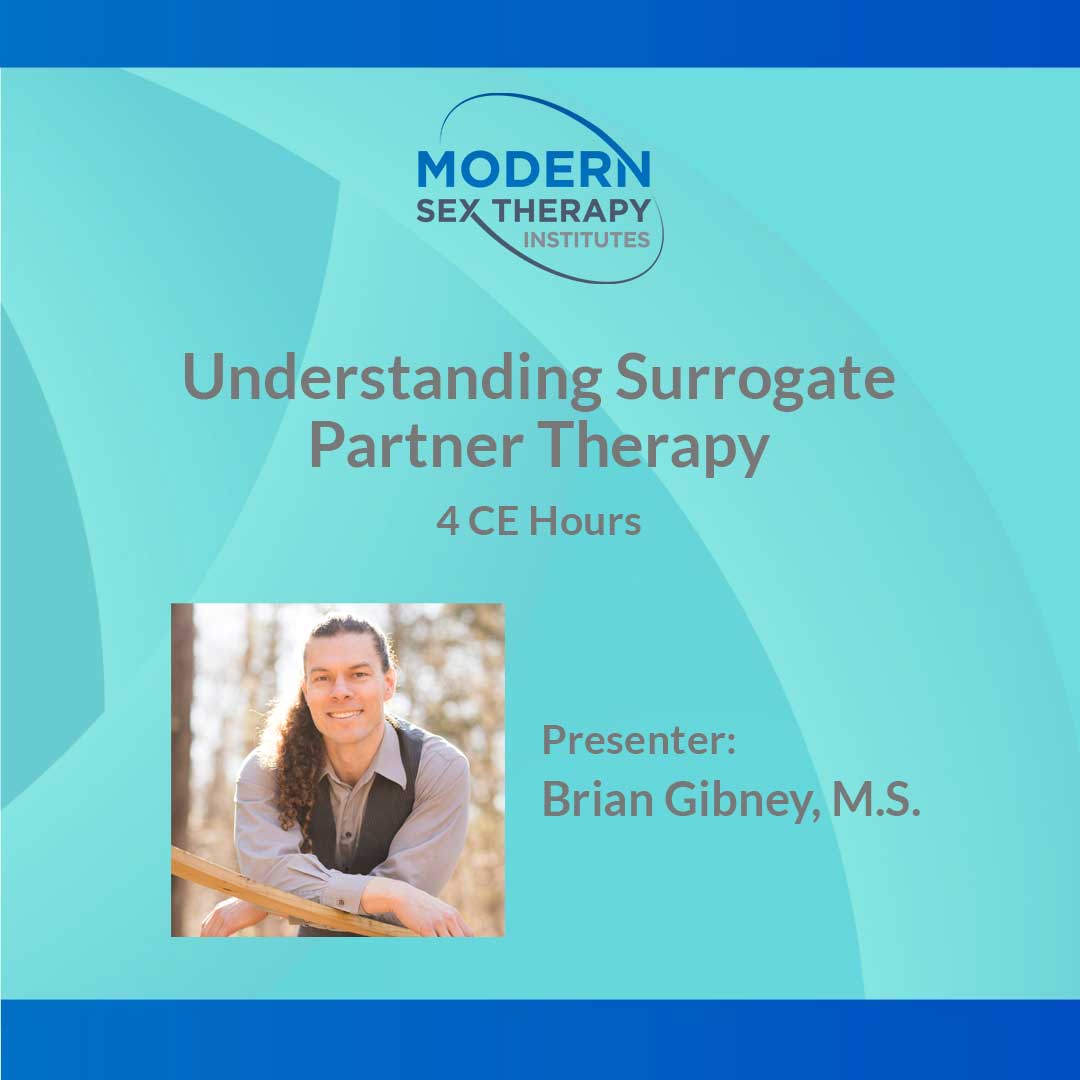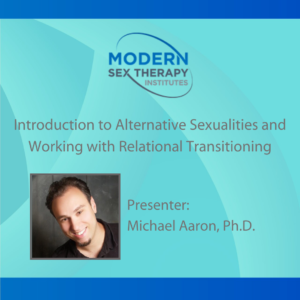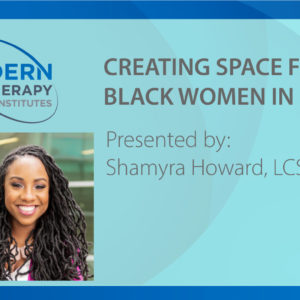Understanding Surrogate Partner Therapy 4 CE Hours
$160.00
4 CE Hours
Presenter: Brian Gibney, M.S.
Recorded workshop available via video on demand
Description:
Since its introduction into the therapeutic community by Masters and Johnson in the 1970s, Surrogate Partner Therapy has been a powerful, if often misunderstood, therapeutic tool. In this presentation we will examine the use of surrogate partner therapy (SPT) as a supplemental treatment for patients experiencing severe impedances to physical and/or emotional intimacy. We will discuss a brief history of SPT, introduce IPSA (the International Professional Surrogates’ Association), identify typical presenting issues that SPT may be used to overcome, and discuss the process of the work. We will also discuss the overarching philosophies of SPT, ethics, and legality of the use of surrogate partners.
This extended lecture includes the topics above as a background and builds on the theory through two exemplary case studies. Case studies will feature two clients with very different goals. Through the lens of their work, we will see how the basic tenants of SPT are applied, how clinical (therapy) intervention aided (or hindered) the process, and how the trajectory and duration of the work can vary greatly from client to client.
Learning Objectives
- Discuss what type of clients could benefit from surrogate partner therapy.
- Explain the basic steps and content of the process of surrogate partner therapy.
- Explain the theory and process of foundational exercises commonly used in surrogate partner therapy.
- Discuss the basic professional and ethical considerations in working with surrogate partners as well as identify potential legal and professional ramifications of the work.
Outline
- Part I: background of SPT (~1.5 hour)
- Introduction of course (a-e ~20 min)
- Learning objectives and setting the container
- About Brian
- Short intro to SPT, history
- Triadic model
- Specific concerns of SPT clients
iii. Relational scaffolding for work
-
- The container of SPT
- Safe, contextualized touch
- Co-regulation self regulation
-
- Arc of SPT (40 min)
- Preparation/onramp
- Managing expectations
- Therapeutic mindset
- Informed consent
- Phase 1: Relationship and Sensory Foundations
- Trustbuilding in relationships—how it is lacking in organic relationships and how it is essential to the work
- Sensual awareness: Awareness of self, object sensate, partnered touch
- Communication and consent: May I, Will You
iii. Phase 2: Sensual
- Expanded touch, nuanced touch dynamics (Wheel of Consent)
- Expanded relationship dynamics
- Phase 3: Erotic
- Erotic touch may be helpful for some, but not required for all
- Challenging expectation
- Applying previous lessons in a context with expectations (trauma, “hould”)
- Phase 4: Closure
- What does “done” feel like?
- Generalizing work to relationships in the wild
- Holding appreciation and grief simultaneously
-
- Legality and Ethics, Vetting SPs, Resources (g-j ~30 min)
- Qualities of a good SP
- Questions (if not addressed previously)
BREAK
- Part 2: Case Studies
- Client 1 (~40 min)
- Background: mid 30s, physically disabled, married and non-monogamous, sexually naïve
- Goals: learning how to communicate, learning how to use her body, experience PIV
iii. Process
- Challenges (old stories, insufficient therapeutic support)
- Outcome (to sex or not to sex, never enough time, relationship with husband, relationships with other partners)
- Questions
-
- Client 2 (~40 min)
- Background: mid 30s, history of addiction, autistic parent, very sexually experienced, queer
- Goals: integrating vulnerability and emotional intimacy into her relationships, pairing emotional intimacy with sex, taking sex out of fantasy realm
iii. Process (group therapy, adept clinician and how THEIR relationship changed)
- Challenges (re-parenting, knowing vs feeling, stories about attraction, identifying/expressing wants, being present)
- Outcome (to sex or not to sex, what does “done” feel like, dating)
- Questions
-
- Resources
- Closing
Bio:
Brian has worn many hats in his life: scientific researcher, educator, professional artist, and circus performer. His diverse life experiences have exposed him to a wide variety of people and lifestyles and helped him appreciate the common threads that bind us all together. As a surrogate partner and intimacy coach, Brian seeks to use his knowledge to help people overcome obstacles to physical and emotional intimacy. Applying techniques pioneered by Masters and Johnson, he uses an integrative approach to help others find balance in their intellectual, emotional, and physical selves. With the help of a therapist, Brian guides clients through the resolution of a variety of issues, including histories of trauma or abuse, social anxiety, poor body image, sensual awareness, orgasmic blocks, genital pain, disability, rediscovery of their bodies during/after transition, and late-life virginity in a safe, non-judgmental environment. His practice is rooted in patience, authenticity, vulnerability, touch…and sometimes a little bit of humor.
Brian received his BA in Molecular Biology from Kenyon College in 1999 and his Masters in Microbiology from the University of Massachusetts in 2006. He received his training in surrogate partner therapy from IPSA (International Professional Surrogates Association) in 2016. Brian helped found the Surrogate Partner Collective, EMBRACE Resource Group, and is currently serving as chair of AASECT’s Somatic Sexuality Professionals special interest group. In addition to working with clients, Brian is a passionate advocate for surrogate partner therapy and regularly lectures at private practices, universities, workshops, and professional conferences. y Institutes, Co-Director Nova Southeastern University, Adjunct Professor




